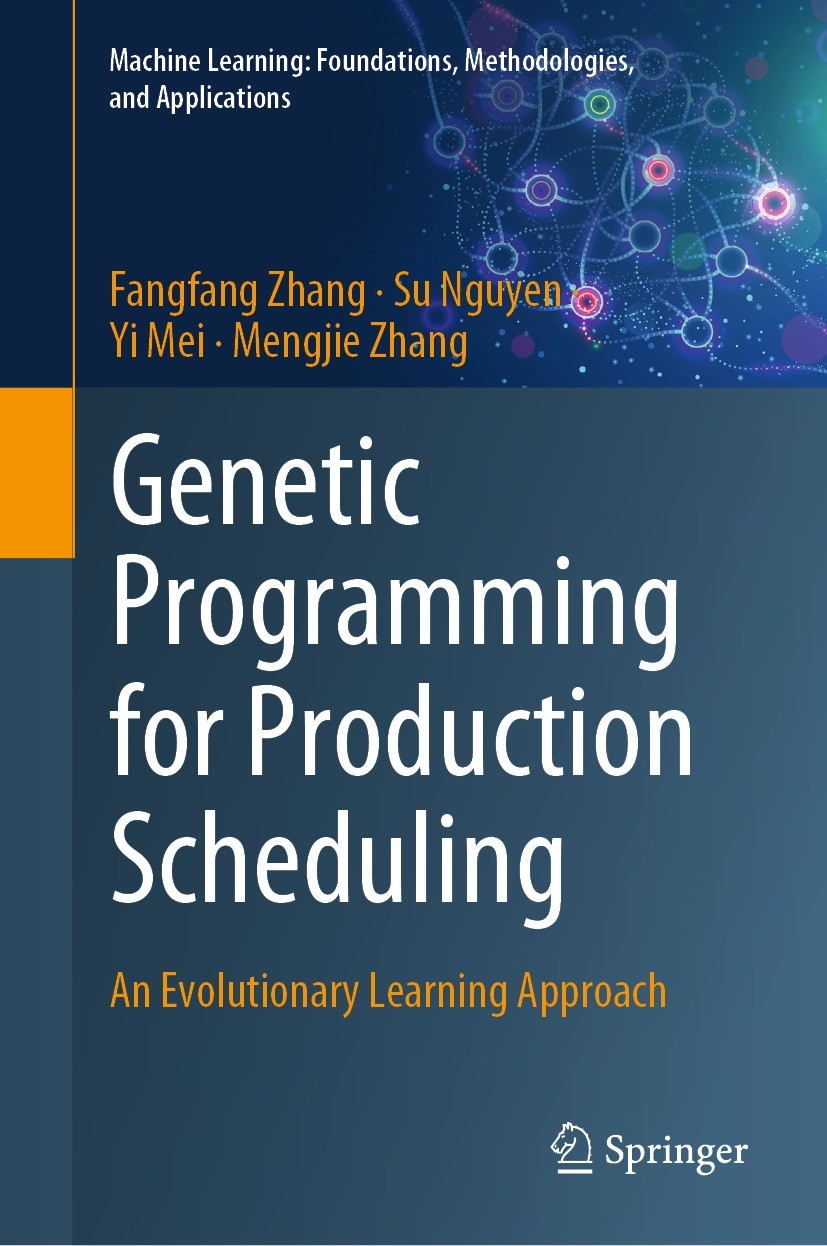| 書目名稱 | Genetic Programming for Production Scheduling | | 副標題 | An Evolutionary Lear | | 編輯 | Fangfang Zhang,Su Nguyen,Mengjie Zhang | | 視頻video | http://file.papertrans.cn/383/382618/382618.mp4 | | 概述 | Presents theoretical aspects and applications of genetic programming for production scheduling.Explores the modern and unique interfaces between operations research and machine learning.Offers an intr | | 叢書名稱 | Machine Learning: Foundations, Methodologies, and Applications | | 圖書封面 |  | | 描述 | .This book introduces readers to an evolutionary learning approach, specifically genetic programming (GP), for production scheduling. The book is divided into six parts. In Part I, it provides an introduction to production scheduling, existing solution methods, and the GP approach to production scheduling. Characteristics of production environments, problem formulations, an abstract GP framework for production scheduling, and evaluation criteria are also presented. Part II shows various ways that GP can be employed to solve static production scheduling problems and their connections with conventional operation research methods. In turn, Part III shows how to design GP algorithms for dynamic production scheduling problems and describes advanced techniques for enhancing GP’s performance, including feature selection, surrogate modeling, and specialized genetic operators. In Part IV, the book addresses how to use heuristics to deal with multiple, potentially conflicting objectives in production scheduling problems, and presents an advanced multi-objective approach with cooperative coevolution techniques or multi-tree representations. Part V demonstrates how to use multitask learning te | | 出版日期 | Book 2021 | | 關鍵詞 | Production Scheduling; Machine Learning; Hyper-Heuristic Learning; Genetic Programming; Multitask Optimi | | 版次 | 1 | | doi | https://doi.org/10.1007/978-981-16-4859-5 | | isbn_softcover | 978-981-16-4861-8 | | isbn_ebook | 978-981-16-4859-5Series ISSN 2730-9908 Series E-ISSN 2730-9916 | | issn_series | 2730-9908 | | copyright | The Editor(s) (if applicable) and The Author(s), under exclusive license to Springer Nature Singapor |
The information of publication is updating

|
|
 |Archiver|手機版|小黑屋|
派博傳思國際
( 京公網安備110108008328)
GMT+8, 2025-10-7 15:53
|Archiver|手機版|小黑屋|
派博傳思國際
( 京公網安備110108008328)
GMT+8, 2025-10-7 15:53


